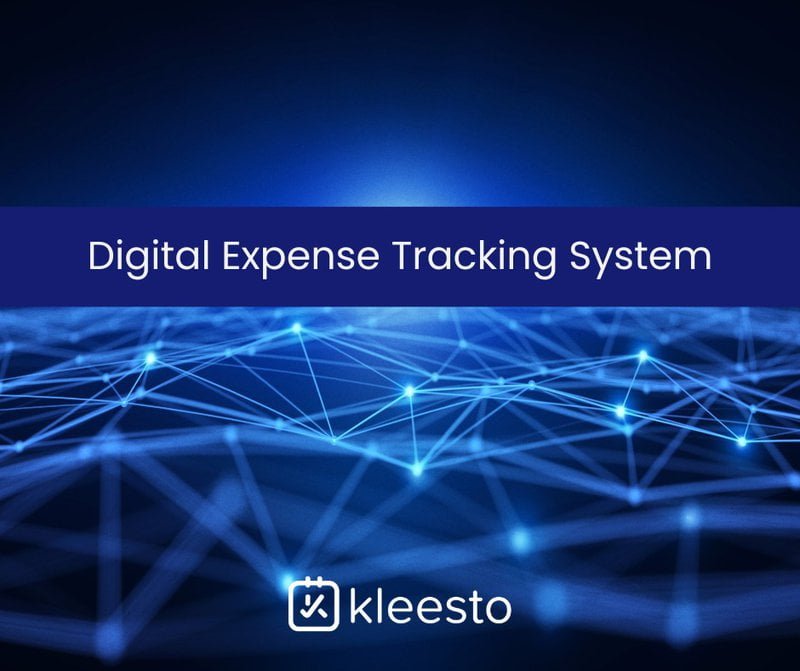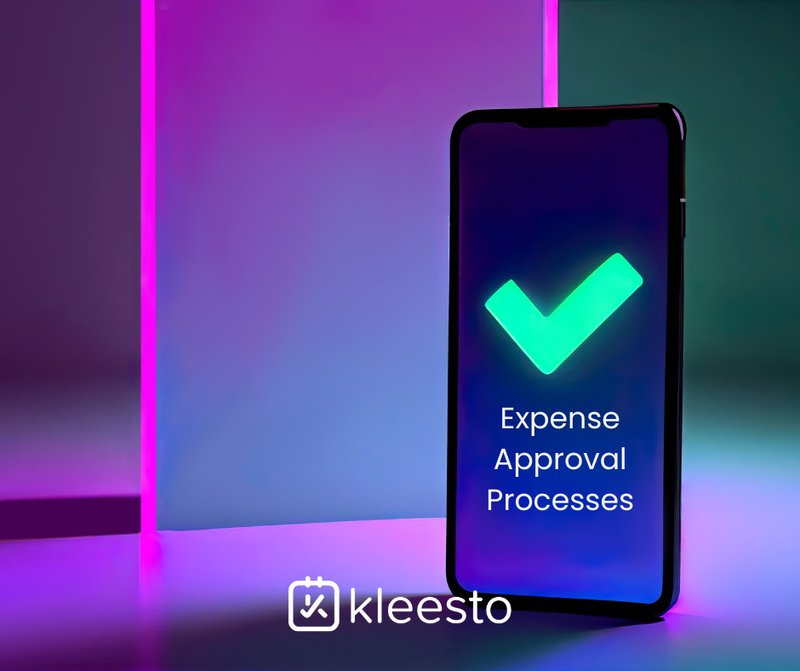Expense-tracking strategies are essential for travel businesses. Why? Firstly, it helps manage finances better. This means businesses can make smarter decisions. Next, by examining expenses, companies spot areas to save money. Thus, they can boost their profits. This is key because earnings in travel can sometimes be slim.
Additionally, tracking expenses aids in planning. Specifically, it's useful for budgeting and predicting future costs. So, when a company uses a good tracking system, their money management gets smoother. In turn, their chances of making more profit increase.
In summary, tracking expenses is crucial for a travel company to thrive. It's a tool that provides clarity in a competitive world. This clarity can lead to the company's financial success.

Implementing a Digital Expense Tracking System
The benefits of using a digital expense tracking system.
Digital expense tracking systems are super helpful. How? Well, they offer real-time updates on expenses. This means you can see your spending clearly and quickly. This is a big plus for businesses and people watching their money closely. It helps in making smart money choices.
Another advantage is automation. Many of these systems can sort expenses for you. They can even scan your receipts! This feature saves both time and effort. Plus, they usually store all this data safely in the cloud. This means your financial details are protected and ready to access on any gadget.
In short, using such a system makes managing money simpler. It boosts efficiency, offers better financial control, and lessens money-related worries.
How to choose the right expense-tracking software.
When picking the best expense-tracking software, there's much to consider. First, think about what you need. Do you want to track expenses? Or do you also want to plan budgets and forecast spending?
Another thing to consider is the software's growth potential. As your business grows, you want the software to keep up. Then, look at how easy it is to use. You don't want to waste time on a complicated system. Moreover, check if it can work smoothly with other software you use. This helps in transferring data easily.
Lastly, consider your budget. Different software comes at different prices. So, pick one that fits your wallet. Remembering these points can guide you to the best expense-tracking strategies for your business.
Categorizing Expenses for Better Analysis
The significance of categorizing expenses for travel businesses.
Sorting out expenses is super important for travel companies. These companies can see where their money goes by putting expenses into groups. This helps them make smart choices. For example, they can figure out where they can save money or where to spend differently to earn more.
Over time, this sorting also shows their spending habits. This data can help plan budgets or spot new trends. Imagine a company spends a lot on marketing, but it's not working. They can then try a new marketing plan or look for other ways to advertise.
Also, when tax time comes, having organized expenses is a big help. Companies can easily spot costs that reduce their taxes. In short, grouping expenses is a big deal. It offers travel companies the knowledge they need to do well and stay on track with money.
How categorizing expenses allows for better analysis and decision-making.
Sorting out expenses is a key step for both people and businesses. By grouping costs like rent, marketing, or utilities, it's easy to see where the money goes. This helps to get a clear view of the main spending areas. With this setup, comparing money spent over months or years becomes simple.
This kind of organization is super helpful for making plans about money. Maybe someone notices they're spending too much on eating out. Or a business sees that their advertising costs are high but not helping much. With sorted expenses, they can decide to change their habits or strategies.
By spotting and cutting out extra or unneeded costs, saving money is possible. In a nutshell, when people or businesses sort their expenses, they can make smarter money choices. It's all about taking charge of finances and making the best decisions.

Setting Budgets and Expense Limits
The importance of setting budgets and expense limits for travel businesses.
Budgets are super important for travel companies. They give a clear plan on how to spend money wisely. A business can decide where money should go and what's most important by setting a budget. This means they can use their money in the best way.
Expense limits stop businesses from spending too much. If they know their limits, they won't run out of money. This helps companies stay strong, even when unexpected costs come up. They can continue offering great service without worrying about money.
In the travel world, things can change fast. There might be surprise costs or changes in plans. By having budgets and limits, businesses are ready for anything. It's like having a money roadmap for a smooth journey.
Tips on how to set realistic budgets based on past expenses and industry benchmarks.
Setting budgets might seem scary, but with the right steps, it's easier. First, look at how you've spent money in the past. By understanding your past spending, you'll spot where you might save. Maybe you notice some mistakes you made before. Learning from them helps you plan better for the future.
Another good idea is to see how others in your field spend their money. Find out the usual amounts businesses like yours spend on advertising or employee pay. This gives you a good idea of what's normal for your industry.
In short, to make a realistic budget, learn from the past and check what others are doing. This way, you're well-prepared and know where your money should go.
Regularly Reviewing and Analyzing Expense Reports
The need for regular review and analysis of expense reports.
Regularly checking expense reports is super important for any business. Why? Well, it helps businesses spot mistakes or things that don't add up in their reports. Keeping these records straight and up-to-date is essential.
But there's more! When businesses look at their reports often, they can see if they're spending too much in some areas. Maybe they'll find ways to save money. This helps companies make smart choices about where their money goes.
Also, by doing regular checks, companies can catch any wrong or suspicious expenses. This makes sure everyone is honest and keeps the business's money safe.
In short, always looking at and studying expense reports helps businesses stay in good financial shape. It's a must-do!
Tips on how to analyze expense reports effectively.
Analyzing expense reports is a must for businesses wanting to handle their money well. First, go through each expense carefully. Check all the small details, like when the expense happened, who it was paid to, and what it was for. This way, you can catch any mistakes or things that seem off.
Then, look for patterns in how you're spending. Maybe you'll spot ways to save money. Also, always match the expense report with things like receipts to make sure they're correct. Watch out for any expenses that appear more than once or that shouldn't be there.
It's also a good idea to group expenses. Maybe put them into categories like "office supplies" or "travel." This makes it easier to see where most of the money is going.
In short, by taking these steps, businesses can better understand their expense reports. This helps them make smart choices with their money.

Implementing Expense Approval Processes
The importance of implementing expense approval processes.
Having an expense approval process is super important for any company. Why? It helps keep a close watch on the company's money. With a clear system in place, it's harder for mistakes or sneaky things to happen with the finances. Plus, it makes sure everyone is honest and careful about spending the company's money.
Moreover, this process makes everything clear and above board. All expenses need a reason and a stamp of approval before they happen. This stops wasteful spending and keeps everyone in check.
Besides, there are rules and laws about money that companies must follow. A solid expense approval process makes sure the company does everything right. That way, they avoid any trouble.
In short, having a system to approve expenses is vital. It keeps a company's money safe and ensures everything is done the right way.
Tips on how to set up an effective approval workflow.
Creating a smooth approval workflow is key for organizations to work efficiently. First, every team member should know their job in the workflow. This means no mix-ups or two people doing the same thing. Next, using the right tools, like software, can make the process automatic and reduce mistakes.
Also, it's important to set clear rules and deadlines for each step. This way, everyone knows what's expected and when. Plus, checking the workflow from time to time is a good idea. It helps spot problems or areas that can be better.
Lastly, training is key. If employees know what to do and how to do it, things run smoother. In the end, with these steps in place, organizations can have a clear and efficient approval workflow. This helps tasks get done faster and makes sure everyone's on the same page.
Conclusion: The importance of expense tracking strategies for travel businesses.
Expense tracking is super important for travel businesses. When they watch their expenses closely, these businesses can see how they spend money. This helps them figure out where they might be spending too much. By doing this, they can make smarter choices and use their money better. This can lead to them making more money in the long run.
Keeping track of expenses also helps businesses see how much money they have coming in and going out. This is crucial, especially in the travel business, where there are many costs, like hotels, food, and transport. By understanding these costs, they can better plan and set prices.
Lastly, checking expenses regularly helps find patterns of unusual spending. This lets businesses adjust and do better financially. In short, if travel businesses want to do well and last a long time, they should definitely keep a close eye on their expenses. Learn more about accounting solutions in the travel industry on our website.

FAQ: Expense Tracking Strategies for Travel Businesses
Why is expense tracking crucial for travel businesses?
Expense tracking is vital for managing finances effectively and making informed decisions in the travel industry. Businesses can identify areas to minimize costs and maximize profits by monitoring expenses. This is especially important in an industry with tight profit margins. Additionally, proper expense tracking aids in budgeting, forecasting, and ensuring financial stability.
What are the advantages of using a digital expense tracking system?
Digital expense tracking systems offer real-time tracking and reporting, providing a clear overview of expenses. They often come with automated categorization, receipt scanning, and secure cloud storage. This enhances efficiency, improves financial control, and reduces the stress of managing expenses.
How can categorizing expenses benefit travel businesses?
Categorizing expenses helps businesses understand their financial situations, facilitating better decision-making. It allows businesses to track and analyze spending patterns, create budget forecasts, and make strategic adjustments. It also aids during tax season to quickly identify deductible expenses and ensures financial stability.
Why is it essential for travel businesses to set budgets and expense limits?
Setting budgets and expense limits provides a clear financial framework for decision-making, allowing for efficient resource allocation and prioritization. They help track expenses, identify cost-cutting opportunities, and plan for the future. By setting limits, businesses can prevent overspending and ensure they operate sustainably.
How important is implementing an expense approval process?
An expense approval process is vital for organizational control and oversight over financial resources. It ensures proper tracking of expenses, prevents financial mismanagement, promotes transparency, and deters unnecessary spending. Such processes also help organizations adhere to legal and regulatory requirements.







